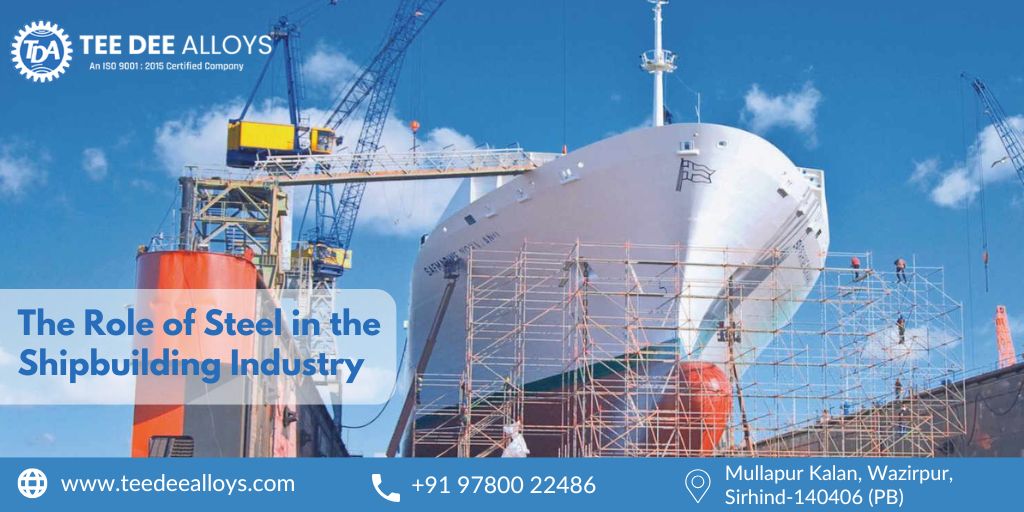In shipbuilding, every material matters — but few are as vital as steel. It’s not just chosen for its strength; it’s trusted for its ability to meet the exact demands of life at sea. Whether crafting commercial vessels, offshore platforms, or military ships, steel enables builders to balance durability, safety, and performance.
Today, with evolving engineering standards and sustainability goals, steel continues to stand out as a material that delivers reliability without compromise. A trusted steel manufacturing company in Punjab plays a vital role in supplying high-quality steel that meets the rigorous requirements of marine construction.
Let’s take a closer look at how steel supports the shipbuilding industry — and why it remains the material of choice for seaside construction around the world.
Why Steel Is Essential in Shipbuilding
1. Exceptional Strength and Durability
Ships must withstand immense pressure, corrosive saltwater, harsh weather conditions, and continuous mechanical stress. Steel’s high tensile strength and resistance to exhaustion make it ideal for constructing hulls, decks, and structural components. It ensures that vessels remain safe and functional over decades of use.
2. Cost-Effectiveness
Compared to other strong metals like titanium or aluminum, steel is significantly more economical. Its affordability enables shipbuilders to design large-scale vessels without exceeding budgetary limits, making it a preferred choice for both commercial and military applications.
3. Versatility in Fabrication
Steel can be easily cut, shaped, and welded into complex structures, which is crucial in building large and intricate ship designs. Whether it’s creating streamlined cargo holds or reinforcing bulkheads, steel’s adaptability simplifies the construction process and allows for innovation in design.
Types of Steel Used in Shipbuilding
1. Mild Steel
Most commonly used for hulls and outer structures, mild steel provides a good balance between strength and ductility. It’s easy to work with and ideal for areas that don’t require ultra-high strength.
2. High-Strength Low-Alloy Steel (HSLA)
Used in parts of the ship that need enhanced mechanical performance, HSLA steel offers better strength-to-weight ratio and corrosion resistance, helping reduce overall ship weight and fuel consumption.
3. Stainless Steel
Stainless steel is used in specific areas prone to corrosion, such as piping, tanks, and exposed structural elements. Its great anti-corrosive qualities lower maintenance costs and increase ship durability.
Steel Applications in Various Ship Types
- Cargo Ships – Rely on steel for strong hulls and bulkheads to safely transport heavy and large volumes of goods.
- Passenger Ships & Cruise Liners – Use steel not just for strength but also for sleek, aesthetic design integration.
- Oil Tankers – Require specially coated steel for chemical resistance and leak prevention.
- Naval Ships – Built using high-grade alloy steel for extra strength, stealth capabilities, and resistance to extreme conditions.
Sustainability and Recycling of Steel in Shipbuilding
Steel is one of the most easily recyclable materials. Decommissioned ships can be dismantled and their steel reused in new constructions, reducing the environmental footprint. This recyclability aligns with modern shipbuilding’s growing emphasis on sustainability and eco-friendly practices.
Challenges and Future Outlook
While steel remains the cornerstone of shipbuilding, there are challenges such as:
- Corrosion Management – Constant exposure to marine environments demands effective anti-corrosion treatments and coatings.
- Weight Optimization – As fuel efficiency becomes a priority, shipbuilders are exploring advanced high-strength steels to reduce vessel weight without compromising strength.
Looking ahead, innovations in steel alloys and treatment processes will continue to enhance its performance, ensuring steel’s dominance in future shipbuilding endeavors.
Conclusion
Steel’s unmatched combination of strength, versatility, cost-efficiency, and recyclability has made it a fundamental material in shipbuilding. As the maritime industry advances toward safer, more sustainable, and more efficient vessels, steel will continue to play a pivotal role in shaping the future of the seas — powered by expertise from trusted steel manufacturing companies like Tee Dee Alloys in Punjab and beyond.


